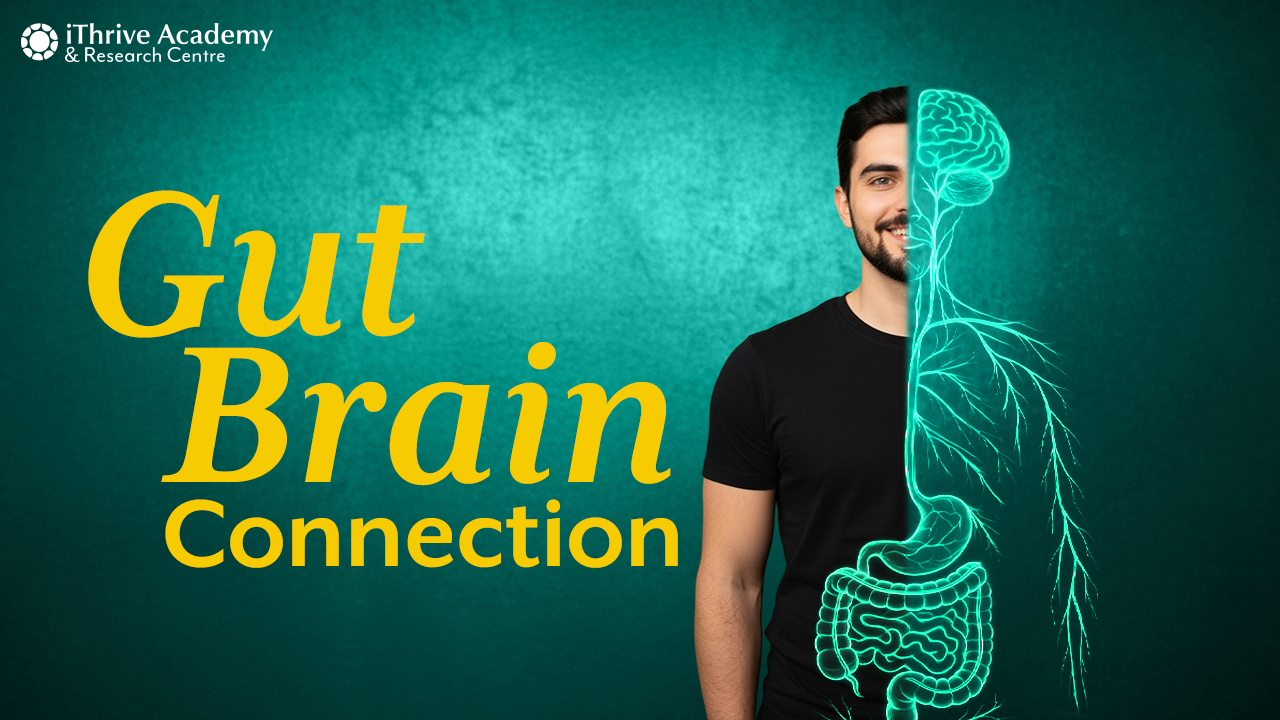Understanding the Current Health Crisis
Despite tremendous progress in contemporary medicine, chronic diseases such as heart disease, mental illness, and others are still increasing at a startling rate. Considering the strain of modern living, millions are looking for solutions as dietary choices and environmental pollutants have made these issues worse.
Traditionally, the conventional practices emphasized on treating symptoms rather than root causes. Many individuals adopt calorie counting or food pyramids without any real changes to their health.
In the present context, this has evolved to a new dimension where functional nutrition comes into the picture. Functional nutrition takes a comprehensive approach to health. Beyond "what you eat," it addresses "why your body reacts the way it does," resolving the root causes to maximize wellness. This blog will provide insight into how functional nutrition is growing and why this approach will be important for a brighter healthcare industry in the future.
The Functional Nutrition Revolution: Why We Need It Now
Conventional Nutrition is Outdated
The use of conventional nutrition is outdated. Conventional dietary advice has long been based on oversimplifications like one-size-fits-all diets, general diets, and calorie counting. For instance, if one visits a doctor with gut issues, the doctor will give medicines and ask you to not eat outside, or avoid oily foods, or maybe he will give you some medicines. You might feel good and relaxed after taking those medicines but did your doctor find the root cause of your gut issues? Did he discuss your lifestyle? The answer is “NO”. You need to take into consideration that conventional treatments are not personalized based on your individual body needs. If you feel bloating or gas, a doctor will hand over acidity pills or gas relief that may calm your stomach, but is this the permanent solution? No, these approaches ignore genetics and individual health complexities. Chronic illnesses like obesity, diabetes, and heart disease cannot be treated with blanket guidelines that pay no attention to personal differences and underlying causes.
Root Cause Analysis
Functional nutrition goes deeply into the root causes of disease rather than just managing the symptoms of your disease. It digs out the root causes of your health issues. And these root causes might be nutritional deficiencies, inflammation, and even hormonal imbalance. This root cause analysis means that interventions can target what is wrong, bring back better health, and avoid complications.
Personalized Nutrition
One of the most transformative aspects of functional nutrition is its focus on customization. Diet protocols and lifestyle interventions are based on the root causes and unique body needs, taking into account each person's distinct genetics, lifestyle, and environmental parameters. Functional nutrition has a unique approach from traditional methods.
The Core Principles of Functional Nutrition: A New, Integrated Perspective
Gut Health as the New Foundation
Functional nutrition places a huge emphasis on gut health as the foundation of overall wellness. The gut is intricately connected to immune health, mental well-being, and inflammation. Often referred to as the "second brain," the gut hosts the microbiome, which is a complex ecosystem of microorganisms that influence digestion, nutrient absorption, and even mood regulation. Conventional methods frequently overlook the gut's pivotal role, leading to untreated autoimmune conditions, digestive disorders, and mental health challenges. Functional nutrition resolves the issue with diets rich in prebiotics, probiotics, and fiber. These nourishing nutrients provide the gut with the proper diet that it needs, reduce inflammation in the gut, and cure several related conditions, such as IBS and leaky gut syndrome.
Mental Health and Nutrition
The connection between diet and mental health is often overlooked in conventional medicine, but functional nutrition brings to the fore the critical relationship between the gut and the brain, which is known as the gut-brain axis. Nutrient-rich foods, omega-3 fatty acids, and targeted supplementation are some of the essential components of functional nutrition that help manage mood disorders such as anxiety and depression. By reducing inflammatory foods like processed oils and sugars and incorporating essential nutrients, functional nutrition offers a powerful approach to improving mental well-being.
Stress, Hormonal Balance, and Adrenal Fatigue
The chronic stress epidemic of today's lifestyle is often not taken into consideration with conventional medicine. The science of functional nutrition aims at the root causes of hormonal imbalances and adrenal fatigue by prescribing the client adaptogens, anti-stress foods, and even mindfulness and adequate sleep intervention.
Functional Nutrition's Special Tools: Supplements and Bio-Individuality
Functional Nutrition values supplementation. Current lifestyles, poor soil quality, and nutrient-poor foods mean that many people require supplementation. Supplements are not alternatives to a healthy diet but rather useful reinforcements. Supplements are the final puzzle piece that completes your picture of nutrition. Functional Nutrition focuses on Bio-Individuality because neither 2 people are the same nor their health issues. This approach is very different from the traditional approach of using generalized guidelines.
Real-Life Demonstrations: Functional Nutrition in Real-Life
Functional nutrition has significantly impacted individuals by addressing the underlying causes of chronic health issues. Here are some of the examples:
Reversing chronic inflammation and digestive disorders
Functional nutrition has transformed lives by providing a cure for the root causes. One of our clients was suffering from chronic inflammation and digestive discomfort, such as IBS. For years, he experienced bloating, abdominal pain, and irregular bowel movements that severely affected his daily routine and self-esteem. He tried a lot of different treatments but could not find relief. Then he tried a functional nutrition approach that emphasized gut health and incorporated probiotics to enhance their gut microbiome along with fiber-rich foods. Additionally, anti-inflammatory foods like omega-3-rich fish were included in their diet. Within a few months, his symptoms improved significantly, energy levels surged, and overall health was restored, highlighting the effectiveness of targeted nutritional strategies for chronic conditions.
Improving Mental Health
Here is another example that showcases how functional nutrition can enhance mental health. A person was struggling with anxiety and mood swings that disrupted his daily routine. This was addressed by the functional nutrition approach that focused especially on the gut-brain connection. His previous diet was high in sugars and vegetable seed oils that impacted his gut health. These foods were replaced with nutrient-dense options. Also, omega-3 supplements were added to help reduce inflammation and support brain function. As this was a mental health case, focusing just on the diet was not an appropriate approach. Functional nutrition focuses on other aspects like lifestyle, physical activities, and many more. Various meditation activities like breathwork, sound healing, and chakra healing were introduced to him to make his mind calmer and enhance his focus. A few weeks later, he experienced enhanced focus, reduced anxiety levels, and greater emotional stability.
Why Functional Nutrition is the Path Forward
Today's health challenges need innovative solutions. Functional nutrition recognizes the interconnectedness of the body, as well as how diet, lifestyle, and environment play roles in overall health. Improving gut health, hormonal balance, or supporting mental clarity are all part of this approach to wellness through personalized guidance.
.webp)
If you are one of those who is interested in healing the world with a holistic approach and want to learn functional nutrition you can check out this iCFN course specialised in functional nutrition.









.jpg)






